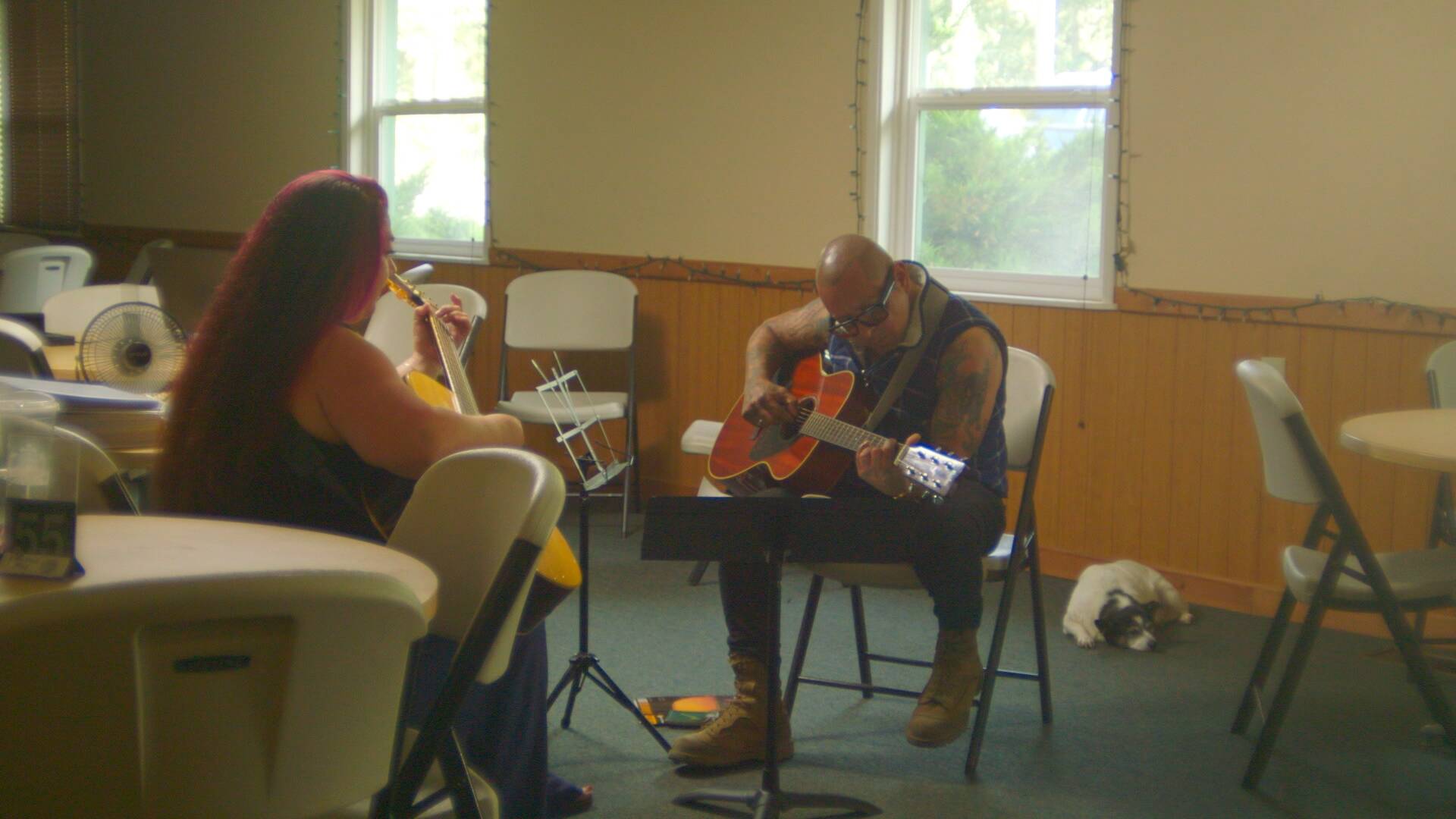A recently established Oak Harbor nonprofit is striking a chord with Whidbey Island veterans and their loved ones.
A local chapter of Guitars for Vets, an organization that helps veterans cope with post-traumatic stress disorder through music lessons, officially launched this spring. In the short time since the chapter’s founding, its coordinator, Oak Harbor resident Melissa Johnson, has already begun work with a handful of students and even drawn the attention of a freelance filmmaker.
Johnson first came to Whidbey Island in 2003 because of her husband’s Navy career. Around seven years ago, she spotted a sign at the Oak Harbor Veterans of Foreign Wars office announcing that an organization was searching for guitar instructors.
The sign was an advertisement from Guitars for Vets International. At the time Johnson saw the posting, the organization had no chapters in Washington state despite the high concentration of military bases in the Pacific Northwest.
A lifelong musician and skilled guitarist, Johnson thought she would be a good candidate to start the first local chapter. Johnson grew up in a musical family. Holidays and family gatherings were spent at her grandmother’s house, singing and playing instruments in extended family jam sessions, a tradition she has maintained with her own husband and children.
In 2017, she officially launched the Seattle chapter of Guitars for Vets. Through the organization, veterans, including current military members, can take 10 weeks of guitar lessons. Upon finishing, participants are gifted a guitar of their own.
On April 13 of this year, Johnson officially opened an Oak Harbor chapter of Guitars for Vets. Her first student graduated on July 31, and her second student graduated earlier this month.
Music has myriad benefits for people suffering from PTSD and other traumatic brain injuries, Johnson said. Learning to play guitar stimulates the brain in different ways, helps rewire the brain to rebuild neural pathways in the hands and takes the player’s mind off of traumatic thoughts or memories. Even the vibrations and resonance of the guitar can be soothing.
“It’s less about learning the guitar, and it’s more about having an experience of growing, healing,” she said.
Prospective participants need not have any previous music experience, Johnson said, only a willingness to learn. Regardless of where a student starts, the process of gradually improving at the skill can be rewarding and healing. Johnson recalled one of her students remarking that his hands, which were once trained as weapons of war, were now being trained in music.
Johnson said even as the instructor she has benefitted from the lessons she teaches. She said she often feels the lessons are just as good for her as for her students.
Johnson’s husband Mark has supported her as she took on the roles of coordinator and instructor of both the Seattle and Oak Harbor chapters of the organization.
“Being a veteran myself, it’s very dear to my heart,” he said.
He said that an estimated 22 veteran suicides take place in the U.S. every day, and that many of his own friends and former shipmates have suffered from duty-related mental health problems or taken their own lives. Guitars for Vets has the potential to save lives, especially because veterans or active duty military personnel don’t always have the access to resources they need.
The organization attracted the attention of recent Oak Harbor High School graduate Stuart Bassett, a freelance filmmaker. Bassett learned about the Oak Harbor chapter’s opening at the Fourth of July parade, where he received a pamphlet on the organization from Johnson’s son.
Bassett had already been on the lookout for nonprofits to feature in his work. Growing up near the Navy base, and with a veteran father and grandparents, Bassett appreciated the mission of Guitars for Vets and decided to reach out to Johnson about making a short documentary on the chapter.
“Just being in a Navy town, I know so many people that are in the military, and it takes a toll on a lot of people,” he said.
Bassett shot the footage for the documentary this summer before leaving to study filmmaking at Arizona State University. He is currently in the process of editing and producing the film.
Johnson recently brought on a second instructor in the Oak Harbor chapter and is looking for another female instructor. She said she hopes anyone interested in participating in the program, whether as a student or an instructor or in another capacity, will reach out to her at wa.oakharbor@guitarsforvets.org. For Johnson, the joy of seeing others learn and heal is the most rewarding part of operating the program.
“I’m blown away,” she said. “It never gets old, watching somebody sitting there going, ‘I don’t get this, this is so hard,’ and then all of a sudden it clicks.”


